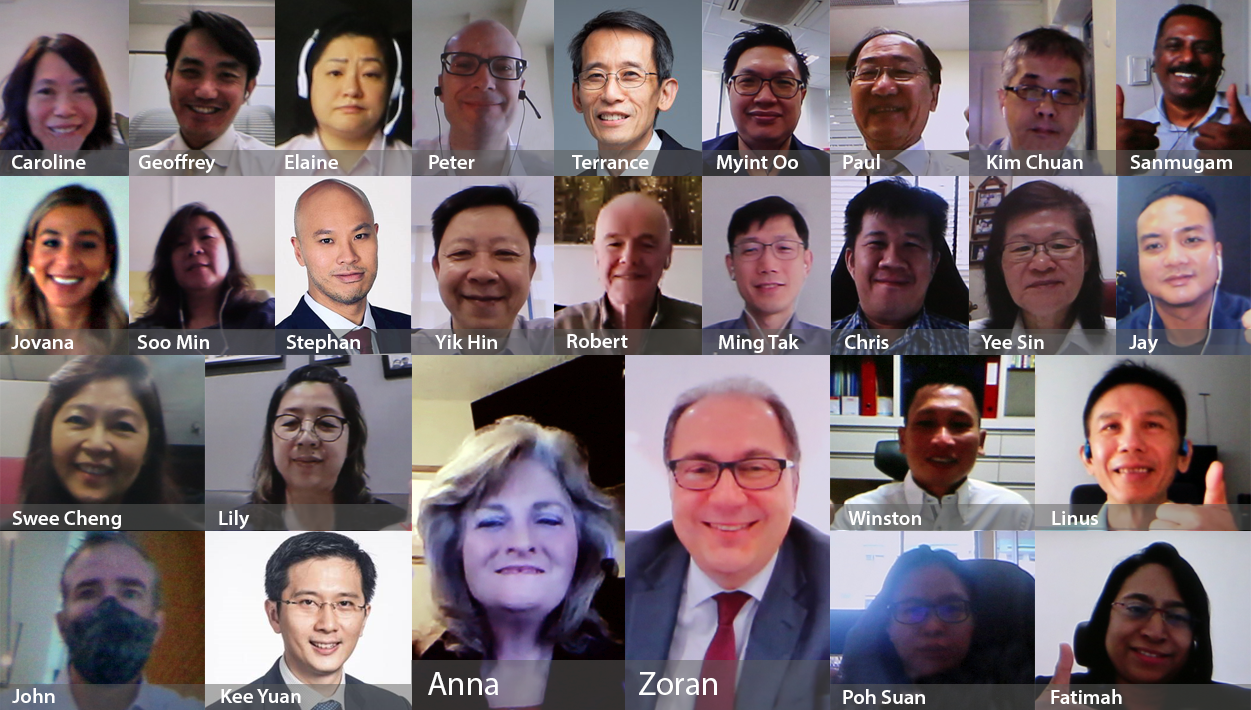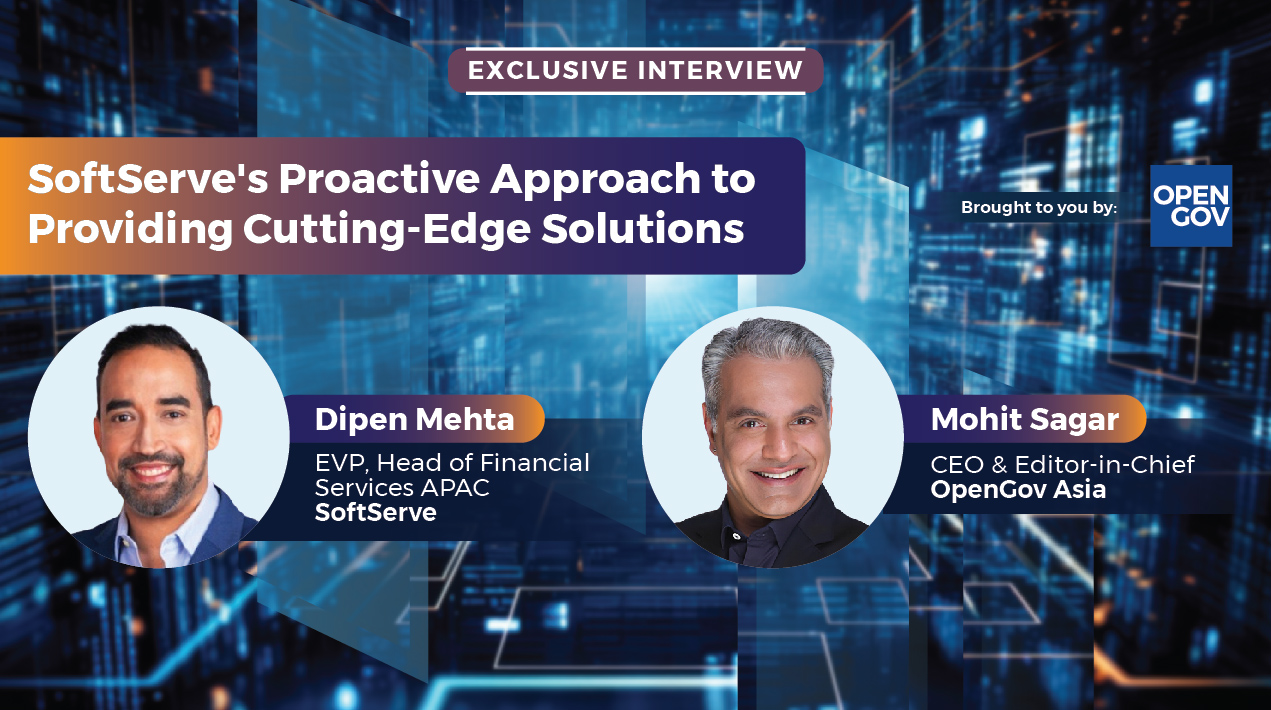
The COVID-19 pandemic has accelerated the need for digital transformation across the globe, not just in commerce, education and work. Health and safety considerations, too, have paved the way for the rapid adoption of technology. To cater to these urgent requirements, there is a pressing need for governments and businesses to adapt and digitalise at an unprecedented speed.
This urgency is particularly apparent in the healthcare sector where medical and frontline workers are experiencing fatigue due to the unprecedented influx of patients and the accompanying administrative workload.
This is where Intelligent Automation comes to the fore to take over routine, repetitive and complex tasks far more efficiently, freeing up human resources for other critical tasks.
Understanding the relevance and experience of this issue, senior executives from the healthcare sector in Singapore engaged in an in-depth discussion during the OpenGovLive! Virtual Breakfast Insight held on 14 January 2021. The discussion revolved around the topic: Reinvigorating the Healthcare Industry by Harnessing the Power of Intelligent Automation.
Making automation processes a priority in the new normal

The discussion began with a bird’s eye view of the current situation in the healthcare sectors of across the globe and the role of technology to address challenges in this area.
Mohit Sagar, Group Managing Director and Editor-in-Chief at OpenGov Asia, elaborated further on the concept of employee fatigue. He said that the foremost question to be answered by organisations to address this issue is how to scale up processes and transactions which have gone through the ceiling.
He acknowledged that the adoption of automation processes in the pre-pandemic era was considered an extravagance within the business frameworks, this is not the case today in the new normal. It is now a necessity to invest in intelligent automation so that work hours can be maximised. The ultimate issue then to be resolved is not whether to shift to automated processes, but how organisations can improve on these tools once they are set in place. This, Mohit added, is how businesses and government agencies can upscale the entire workforce.
A foundation point raised by Mohit was that technology is now embedded in society and it cannot function as efficiently without innovation. Organisations must focus on ushering a completely seamless delivery of services through technology, particularly in the healthcare sector where operations cannot slow down.
He stressed the fact that successful scale programmes for intelligent automation require executive ownership and direction. It is critical to have leaders to direct innovation from the top or otherwise, it is never going to happen.
Mohit concluded by urging delegates to partner with the right people, experts in the field, who can make it easier for them to embark on a journey towards intelligent automation rather than trying to do everything in-house.
Reshaping operations in healthcare through AI, RPA

As the world continues to grapple with the impacts of the pandemic, boosting the healthcare industry through innovative processes is key.
This was the focal point of the discussion led by Dr Zoran Bolevich, Chief Executive and Chief Information Officer at eHealth New South Wales, NSW Health, during the virtual session. For him, the vision of organisations across the world must be to foster a sustainable healthcare system that is digitally enabled.
Dr Zoran confirmed that in countries like Australia, digital advancement is a prerequisite for agencies, especially those in healthcare. Fo his organisation, he cited statistics that show over 12 million hospital appointments were booked digitally and approximately 2.25 million invoice transactions have been processed through digital means.
He was of the firm belief that health IT can be utilised to solve issues in the healthcare sectors more quickly. The challenge then is how to build on tech agility to continue seamless delivery of health services. He added that a ‘future health strategy’ must provide value-based healthcare, elevate the human experience and empower patients or consumers. This, Dr Zoran said, can be achieved by investing in AI and automation.
To further explain, Dr Zoran said that at an initial stage, organisations must automate workflows in shared service centres and use data and algorithms derived from these systems to boost operations. Later, data gathered can be further harnessed to ramp up supply chain management procedures like stock control and automatic re-ordering of supplies. The automation process then becomes a procurement system that can guide staff in a smarter way for the procurement of medical supplies.
Dr Zoran also agreed that AI should further be used to improve processes in updating medication content and providing a basis for clinical decision-making.
Beating the pandemic panic through automation

Anna Twomey, Senior Solution Advisor, Americas Public and Private Healthcare SME, added interesting insights to the discussion at hand.
She mentioned that despite the onset of what she referred to as a pandemic-panic among agencies in the healthcare industry, digital technology could help alleviate these worries.
Anna described Robotic Process Automation (RPA) as a digital partner that gets smarter as more data and insights from the healthcare sector, including visualisation and imagery and e-learning information, are stored. Through RPAs, transformation in healthcare can be further amplified as these streamline transactions in scheduling appointments, approving request referrals, updating patients’ charts, and reviewing medical reports.
As the healthcare sector continues to navigate through tough times during the pandemic, having digital partners like RPAs can help medical practitioners better predict health outcomes and bridge the gap between specific populations of patients within the sector.
Once patient data is recorded, healthcare can look at these analyses to predict trends in certain segments with particular issues or co-morbidities like diabetes, heart conditions and other diseases.
In her experience, some of the challenges which shore up costs decrease patient satisfaction. The solution was to put up an end-to-end AI system that can look up viable solutions to these challenges, from managing patient ratings down to small facets of operations like serving food in hospitals.
Through AI, physicians and healthcare workers are better able to address patient conditions and needed treatments.
Polling questions
After the thought-provoking presentations by the speakers, delegates participated in an insight-sharing activity.
When asked what the primary objective of their digital strategy is, half of the delegates said that the goal is to enhance patient experience and journey while for the others the objective is to improve overall health quality.
According to one delegate from the National University Health System (NUHS), innovation captures many of these objectives. The positive news is that many businesses are building the necessary infrastructure to boost their digital transformation journey.
An interesting question during the session got delegates in deep thought. If their company has an unlimited budget, the area in which 57% of participants said they would invest in is the integration of disparate systems.
A delegate from IHH Healthcare was firm that improving back-end support services is equally important while applying digital initiatives. However, he added that there are still challenges that have to be addressed like scaling programmes. Another participant from the health sector said that if there are challenges in the budget, the solution is to bridge the gap in operations through RPAs.
A third (33%) of participants said that they are inclined to use intelligent automation in their integrated care departments, while the same percentage of attendees cited that they are adopting AI to drive patient experience.
A NUHS executive thought that integrated care is fundamental and that most organisations take the leap when they are presented with the opportunity to intensify integrated care technology. However, she was quick to add that one of the bottlenecks in intelligent automation is the notion that it only caters to back-end processes. In the long term, AI will increasingly be used in other areas of operations.
Her colleague from the NUHS agreed, stating that the whole purpose of adopting AI is to support patients’ journey so integrated care must be at the core of every organisation’s digital blueprint.
Anna summed up the online discussion by encouraging more agencies to capitalise on the strengths of intelligent automation processes in a bid to ramp up operational blueprints in healthcare. This, she said, can be done by collaborating with experts in the field of Intelligent Automation.
She invited the delegates to engage with partners who could guide them and be on the journey with them.
















